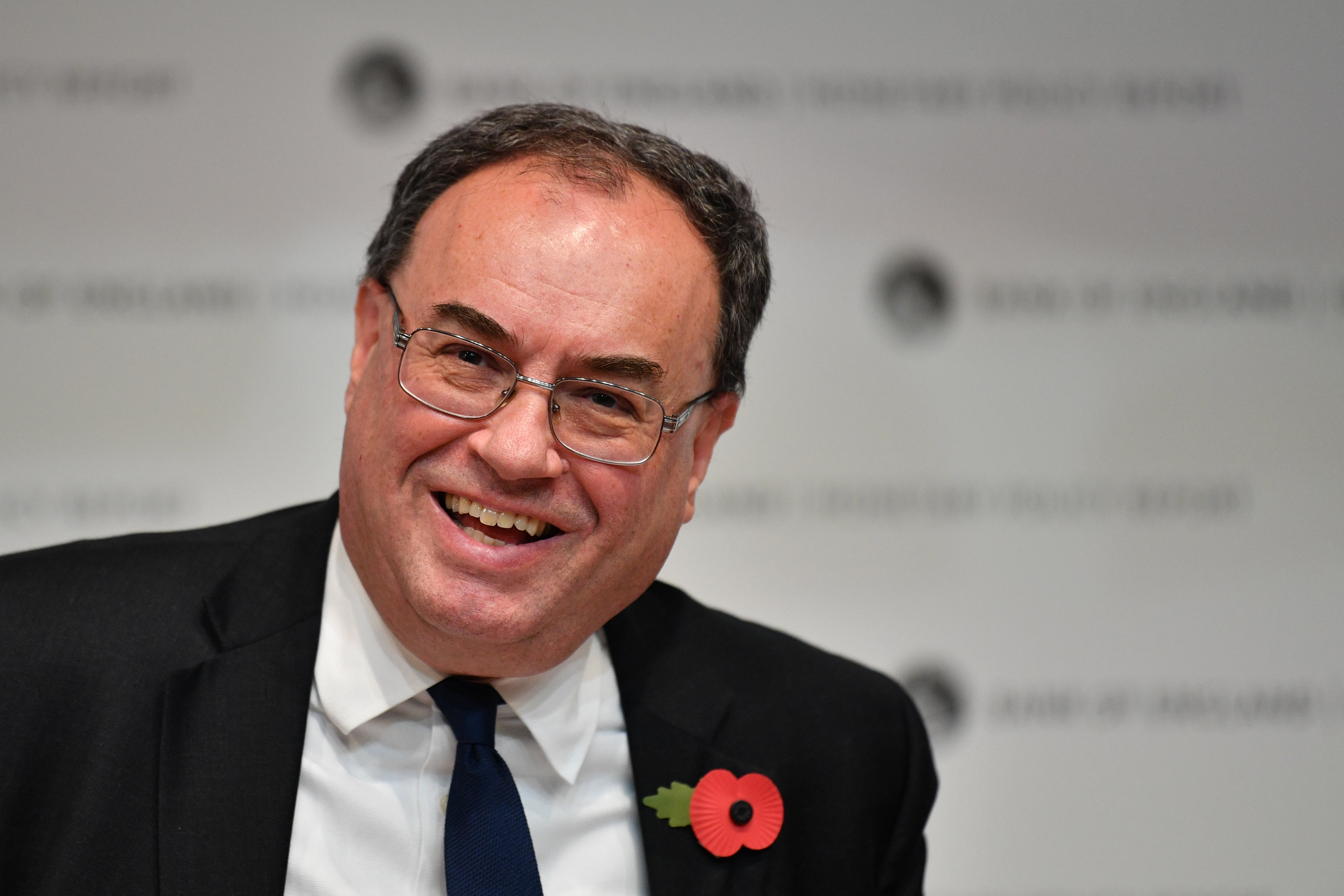Governor Bailey defends decision to hold interest rates but warns rise will come
Andrew Bailey said the central bank would wait for more data on employment before making any decision.

Your support helps us to tell the story
From reproductive rights to climate change to Big Tech, The Independent is on the ground when the story is developing. Whether it's investigating the financials of Elon Musk's pro-Trump PAC or producing our latest documentary, 'The A Word', which shines a light on the American women fighting for reproductive rights, we know how important it is to parse out the facts from the messaging.
At such a critical moment in US history, we need reporters on the ground. Your donation allows us to keep sending journalists to speak to both sides of the story.
The Independent is trusted by Americans across the entire political spectrum. And unlike many other quality news outlets, we choose not to lock Americans out of our reporting and analysis with paywalls. We believe quality journalism should be available to everyone, paid for by those who can afford it.
Your support makes all the difference.The Governor of the Bank of England has defended his decision to keep interest rates at record lows despite inflation rising.
Speaking to BBC Radio 4’s Today programme, Andrew Bailey said interest rates will rise but only when there were signs of demand and wages rising, rather than sky-high prices for global commodities such as computer chips and gas.
He also said the Bank would seek more data on the end of the furlough scheme before making any decision.
On Thursday the Bank surprised some by holding interest rates at 0.1% despite warning inflation could hit as high as 5%.
Raising interest rates won’t produce more gas, it won’t produce more semi-conductor chips. Where we have to use interest rates is where we see the potential for demand to rise or the potential for wage pressures to come into play
The Bank’s remit is to keep inflation at between 2% and 3%.
He said: “We expect interest rates to rise and we are very clear.
“If you ask the question ‘why haven’t you done it now?’, the answer is all to do with the labour market… there were a lot more people using the furlough scheme right up to the end.
“The labour market looks tight in this country at the moment but the missing piece of evidence is just what has happened after the end of the furlough scheme and we don’t have any data to guide us on that.”
Asked whether interest rates will rise as high as 1%, Mr Bailey told the Today programme that when rates rise that would be more likely than a return to pre-financial crisis levels of 4% or 5%.
He added: “We do think interest rates will need to rise but we don’t put a number on it… I’m not going to endorse 1%… I think it’s correct to think in those terms because what it means is the world of low interest rates we’ve been in since the financial crisis… we’re not going back there.”
The Governor added that the Bank’s remit is to keep inflation low but the current high prices are outside of its control.
He explained: “Raising interest rates won’t produce more gas, it won’t produce more semi-conductor chips.
“Where we have to use interest rates is where we see the potential for demand to rise or the potential for wage pressures to come into play, which can be self-perpetuating and we will do that.”
He said: “Inflation is clearly something that bites on people’s household income and they will feel that.
“I’m sure they already feel that in terms of prices going up and I’m very sorry that’s happening… we want to see the causes of inflation, which are to a considerable degree global and supply issues, tackled as soon as possible so we can get to a world where inflation is stable and down at the target… we’re not going back to the 70s. That was a very different era.”